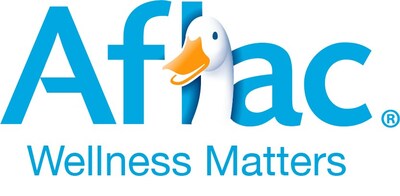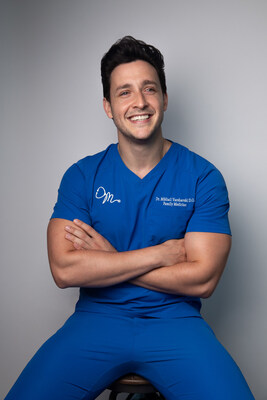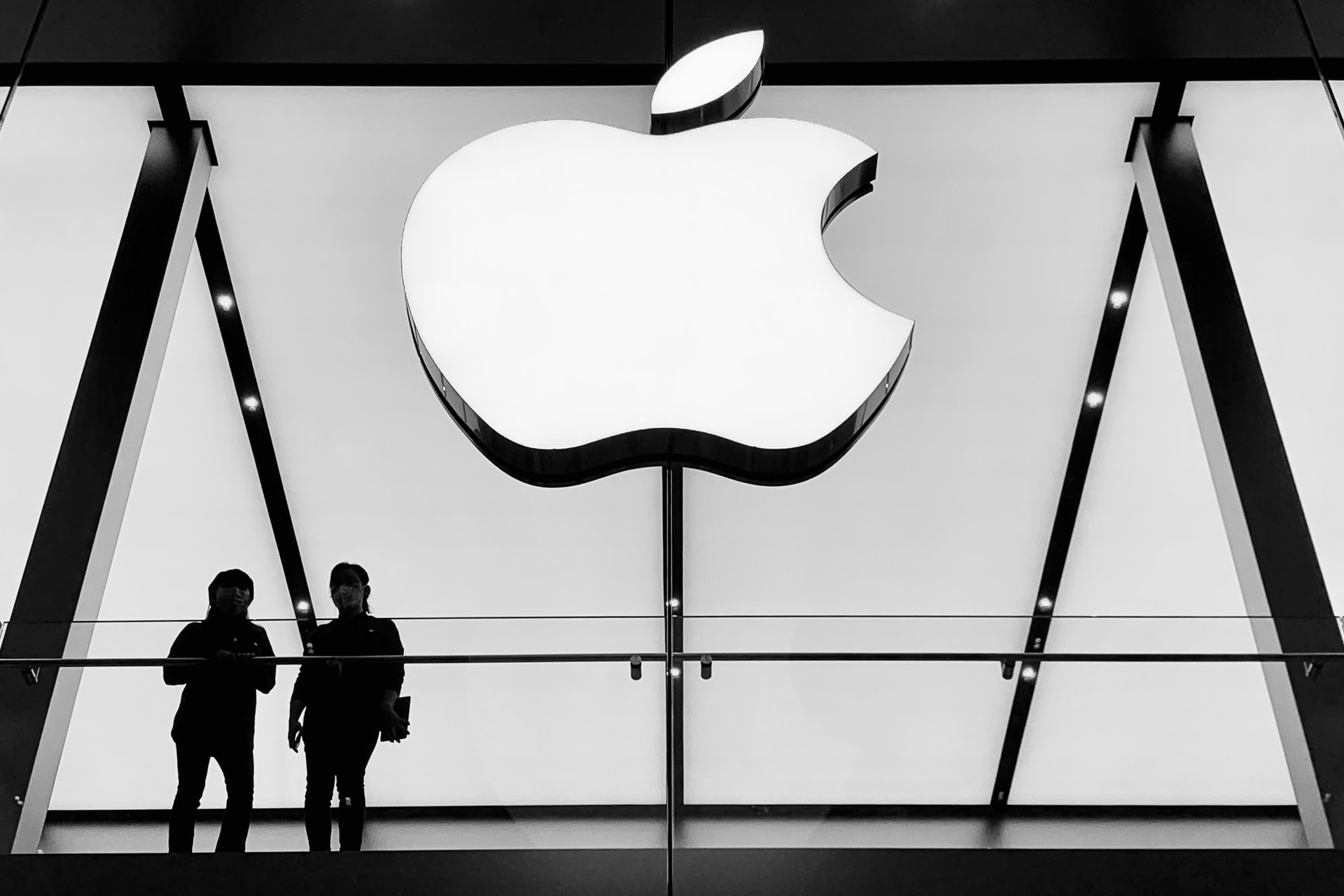Health care advocate and YouTube star "Doctor Mike" Varshavski joins Aflac on their Wellness Matters campaign, urging young people to develop better health habits
Board-certified family medicine physician addresses his social media audience — 25 million strong — to discuss common mistakes young people make with health care and how to fix them
COLUMBUS, Ga., Aug. 12, 2024 /PRNewswire/ -- When it comes to taking care of their health, there are a few simple things that young people may be missing: making and keeping appointments with their primary care physicians, and leaning too heavily on urgent care and the emergency room for their primary care. This, according to Doctor Mike Varshavski, is supported by the second annual Aflac Wellness Matters Survey,1 recently released by Aflac, a leading provider of supplemental health insurance in the U.S.
"Doctor Mike" Varshavski, a board-certified family medicine physician, hosts "The Checkup Podcast" with 12 million-plus YouTube subscribers and was named People Magazine's Sexiest Doctor Alive. Doctor Mike is revealing alarming statistics from the Aflac Wellness Matters survey as a callout to younger Americans to advocate for their own health and wellness, while gently encouraging friends and family to do the same.
"The results of the Aflac survey are aligned with what I see every day through my patients as a board-certified physician, particularly when it comes to younger people," explained Varshavski. "Looking good, taking supplements and taking part in the latest health fads won't guarantee wellness. Young people need to take a more proactive and holistic approach to their health care, which includes seeing your primary physician regularly for recommended screenings, exams and preventive care."
Mistakes young people make with their health
Ironically, the study reveals that younger Americans are hyper-focused on and worry about their physical and mental health — even more so than their social media reputation, getting a promotion or politics. Yet, they are often complacent about their health care. In fact, in spite of significant worrying about their mental and physical health and checkups, 84% of millennials and 81% of Gen Z put off a health checkup or important screenings beyond the recommended time frame. And many millennials admit avoiding essential health screenings altogether, including:
- Pap smear: 34% women overall (40% millennials).
- STD screening: 23% overall (32% millennials).
- Full body skin cancer exam: 27% overall (31% millennials).
- Blood test: 32% overall (39% millennials).
The study shows that most young people, 70% of Gen Z and 66% of millennials, primarily use urgent care or the emergency room for their health care needs instead of building a relationship with their doctor. Furthermore, an alarming 1 in 5 Gen Z and millennials put off seeing their doctor even though they had a nagging feeling something was wrong (at a higher rate than Gen X, 13%, or baby boomers, 11%), showing young people may not be listening to their gut when they are feeling "off."
"Having a primary doctor who you know and trust — and who knows your health situation — can help you to know when you need regular screenings and help you stay on top of your health," explained Varshavski. "Urgent care, emergency rooms and specialty physicians play an important role in continuity of care, but a primary care doctor can stay with their patients over time, helping them with a variety of health concerns and charting their health history. It's all about continuity of care so that patients feel empowered with both information and choices to take care of their health."
Early detection is one of the best ways to treat and prevent serious illnesses
The study looked at those who've experienced a cancer diagnosis, and more than a quarter found out they had cancer because of a regularly scheduled cancer screening or routine exam (34% regularly scheduled screening, 29% routine exam), emphasizing the importance of regular screenings.
On his YouTube channel, Doctor Mike discusses how young people reported logistics, such as difficulty taking time from work, as their biggest barrier to getting timely wellness checkups and screenings. Other reasons included feeling healthy or believing checkups aren't necessary at their age, negative emotions like fear or not trusting doctors, and insurance issues.
"As an actuary whose job is to analyze health care data, I can say without hesitation that it is in the interest of the policyholder, the health care system and the insurance company to practice self-discipline to stay on top of your personal, preventive health care," said Tom Morey, Aflac U.S. chief actuary. "And while health care issues are statistically correlated with age, I can say as someone who lost two years of my life to an unexpected illness in my 20s, when it is happening to you, statistics don't matter as much."
Evidence-based ways to get men to the doctor
The Aflac Wellness Matters survey uncovered that men have a more positive outlook about their current health status and ability to control their health than women. However, men also more often reported skipping appointments because they are healthy right now and/or don't need checkups at their age (27% vs. 20% among women). They were more likely to report delaying or forgetting to schedule important screenings and more likely than women to admit they primarily use urgent care or the emergency room for their health needs (56% v. 47% of women).
The study found evidence-based ways that can help, including that men respond well to encouragement from friends and family. Men were more likely to see a doctor if nudged or urged by a loved one to go (73% vs. 65% of women) and men more often reported a better health outcome when they are urged to go to the doctor: 71% v. 60% of women.
Preventive wellness makes financial sense
Having regular wellness checkups and screenings can help identify illness early and possibly help reduce long-term health costs. However, the study found that young people in particular were more likely to not have coverage or not know if screenings are covered by their insurance.
"At Aflac, our aim is to help bring these numbers down by bringing awareness to young Americans of the importance of building healthy habits early in life — whether that is starting one healthy habit, making an appointment you've been putting off or gently nudging a loved one to do the same," said Morey. "It's the small steps forward that make a difference over time."
Watch the video: Mistakes Young People Make About their Health.
To learn more about the 2024 Wellness Matters survey and to find tips on how to take charge of your own health and encourage others to prioritize theirs, visit Aflac.com/WellnessMatters.
ABOUT THE 2024 WELLNESS MATTERS SURVEY
The 2024 Aflac Wellness Matters Survey, examining attitudes, habits and opinions about health and preventive care, was conducted among a nationally representative sample of 2,000 employed U.S. adults ages 18-65 in April 2024 by Kantar Profiles on behalf of Aflac.
ABOUT AFLAC INCORPORATED
Aflac Incorporated (NYSE: AFL), a Fortune 500 company, has helped provide financial protection and peace of mind for more than 68 years to millions of policyholders and customers through its subsidiaries in the U.S. and Japan. In the U.S., Aflac is the No. 1 provider of supplemental health insurance products.2 In Japan, Aflac Life Insurance Japan is the leading provider of cancer and medical insurance in terms of policies in force. The company takes pride in being there for its policyholders when they need us most, as well as being included in the World's Most Ethical Companies by Ethisphere for 18 consecutive years (2024), Fortune's World's Most Admired Companies for 23 years (2024) and Bloomberg's Gender-Equality Index for the fourth consecutive year (2023). In addition, the company became a signatory of the Principles for Responsible Investment (PRI) in 2021 and has been included in the Dow Jones Sustainability North America Index (2023) for 10 years. To find out how to get help with expenses health insurance doesn't cover, get to know us at aflac.com or aflac.com/espanol. Investors may learn more about Aflac Incorporated and its commitment to corporate social responsibility and sustainability at investors.aflac.com under "Sustainability."
Media contact: Angie Blackmar 706-392-2097 or ablackmar2@aflac.com
Analyst and investor contact: David A. Young, 706-596-3264, 800-235-2667 or dyoung@aflac.com
1 2024 Wellness Matters survey
2 LIMRA 2023 US Supplemental Health Insurance Total Market Report
Aflac's family of insurers include American Family Life Assurance Company of Columbus, American Family Life Assurance Company of New York, Continental American Insurance Company, and Tier One Insurance Company.
Aflac | WWHQ | 1932 Wynnton Road | Columbus, GA 31999
![]() View original content to download multimedia:https://www.prnewswire.com/news-releases/health-care-advocate-and-youtube-star-doctor-mike-varshavski-joins-aflac-on-their-wellness-matters-campaign-urging-young-people-to-develop-better-health-habits-302219480.html
View original content to download multimedia:https://www.prnewswire.com/news-releases/health-care-advocate-and-youtube-star-doctor-mike-varshavski-joins-aflac-on-their-wellness-matters-campaign-urging-young-people-to-develop-better-health-habits-302219480.html
SOURCE Aflac



